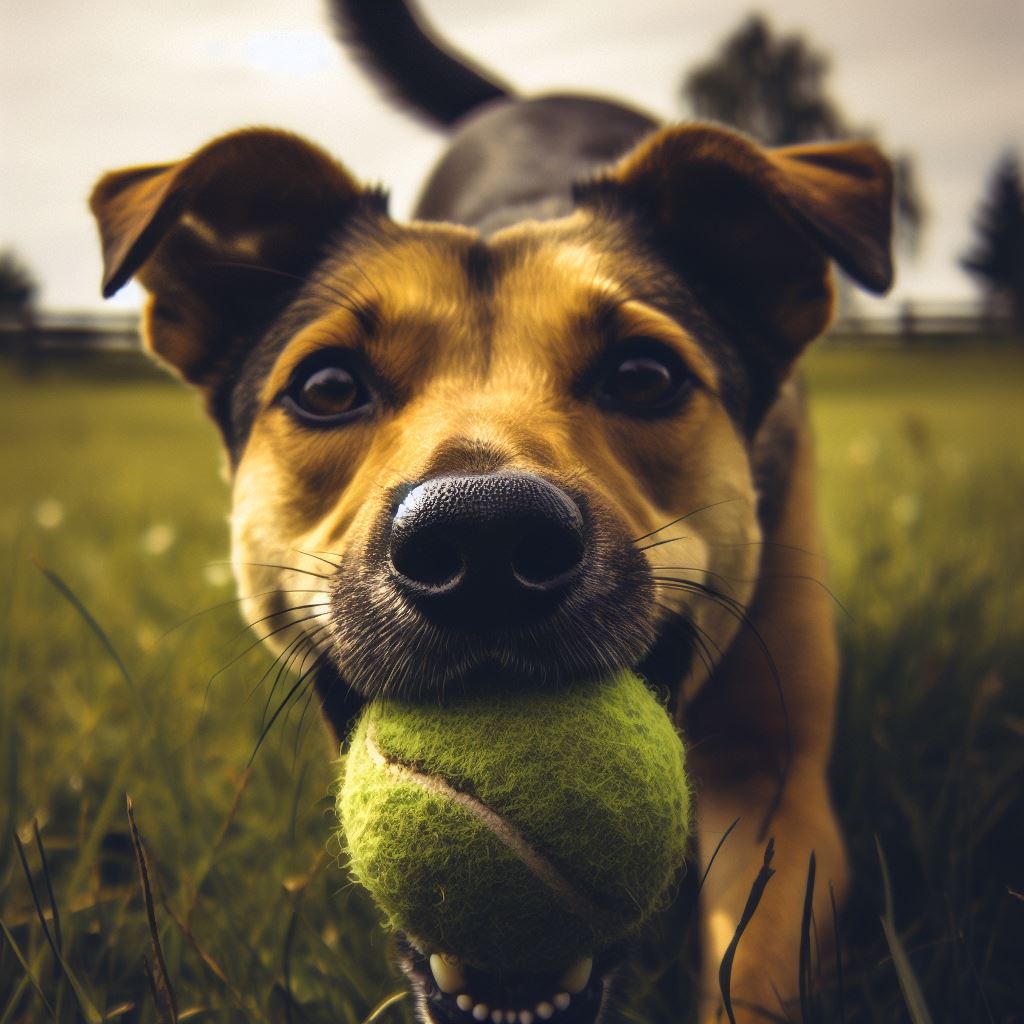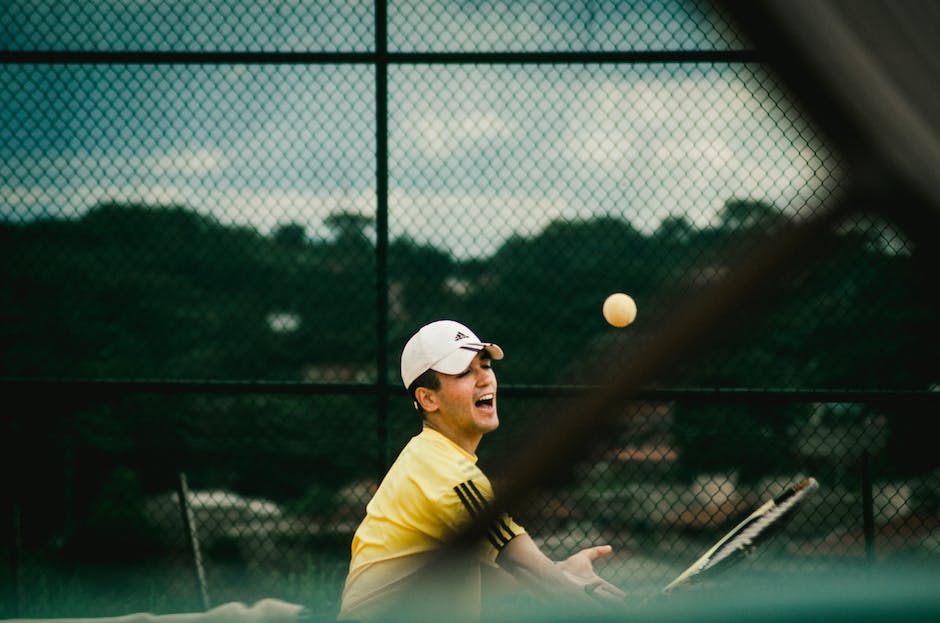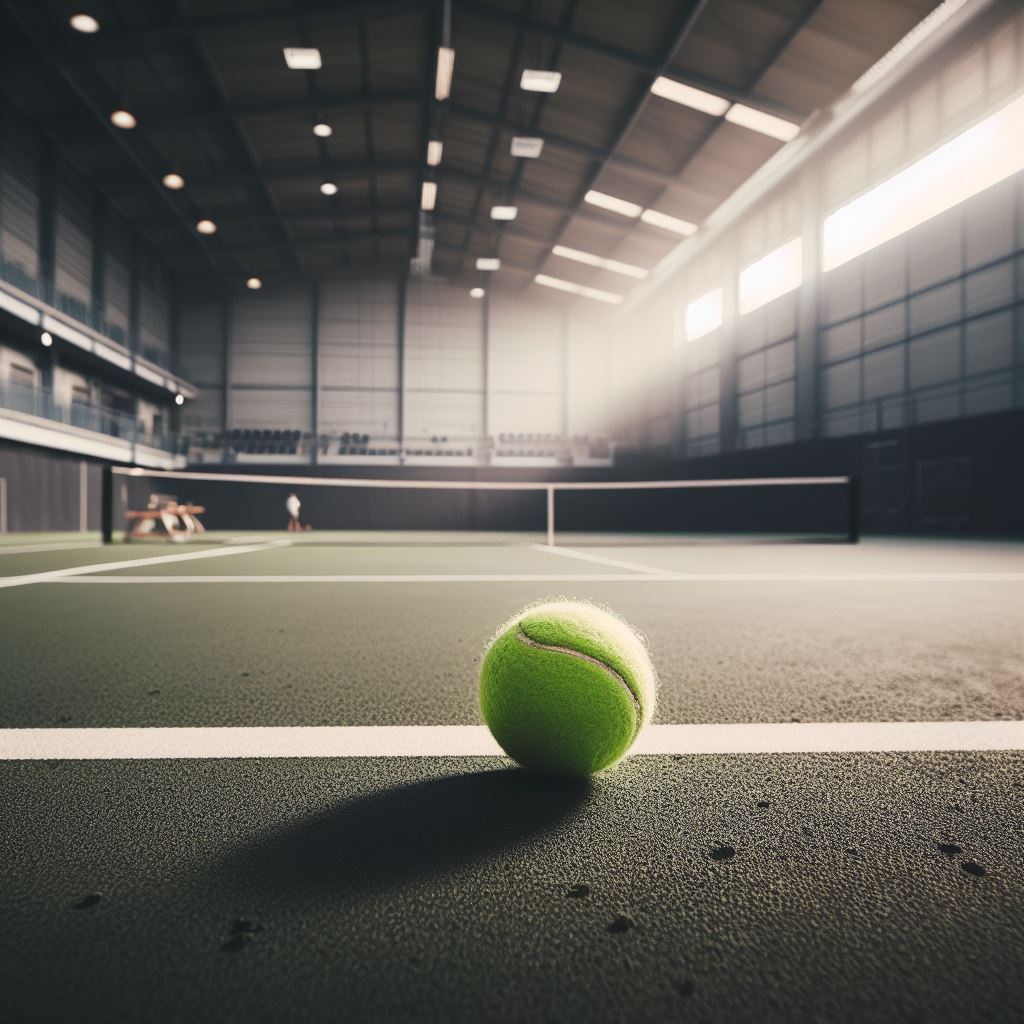Every dog owner knows the joy their furry friend gets from playing with a tennis ball. The sight of a dog chasing after a brightly colored ball is a common one in parks and backyards. But have you ever stopped to ask, “Are tennis balls bad for dogs?”
This question might seem strange at first. After all, tennis balls seem like the perfect dog toy. They’re durable, they bounce, and dogs seem to love them. However, as we’ll explore in this article, there are some potential risks associated with letting your dog play with tennis balls that every pet owner should be aware of.
Choosing the right toys for your dog is not just about keeping them entertained. It’s also about ensuring their safety and health. So, let’s delve into the world of dogs and tennis balls, and find out whether this popular toy is really as harmless as it seems.
Understanding the Appeal of Tennis Balls
Tennis balls and dogs seem to be a match made in heaven. But what exactly is it about these simple toys that dogs find so irresistible? Let’s take a closer look:
- The Chase: Dogs are natural predators, and the erratic bounce of a tennis ball taps into their instinct to chase moving objects. This makes playtime with tennis balls incredibly stimulating and enjoyable for dogs.
- The Texture: Many dogs love to chew on tennis balls. The fuzzy exterior provides a unique texture that dogs find satisfying to gnaw on.
- The Size: Tennis balls are just the right size for dogs to carry around in their mouths. This makes them a go-to toy for games of fetch.
However, despite their appeal, tennis balls may not be the safest option for your dog. In the following sections, we’ll explore why tennis balls might be bad for dogs, and what alternatives you can consider.
Potential Dangers of Tennis Balls
While tennis balls can provide hours of fun for your dog, they also pose several potential dangers. Here’s what you need to know:
- Choking Hazard: Tennis balls can be a choking hazard, especially for larger dogs. If a dog manages to break the ball, they could accidentally swallow pieces of it, leading to choking or even an intestinal blockage.
- Dental Problems: Regularly chewing on tennis balls can wear down your dog’s teeth over time. The abrasive material of a tennis ball can gradually erode the tooth enamel, leading to dental problems.
- Toxic Materials: Some tennis balls may contain materials that are harmful if ingested. While most manufacturers ensure their products are non-toxic, it’s always better to opt for toys specifically designed for dogs.
In the next section, we’ll delve deeper into the dental problems caused by tennis balls and share some real-life examples.
Case Study: Dental Problems Caused by Tennis Balls
While it might seem harmless, letting your dog chew on tennis balls can lead to serious dental problems. Here are some real-life examples and expert opinions on the matter:
- Case 1: A dog owner noticed that their dog’s teeth were becoming flat and worn down. Upon visiting the vet, they discovered that the cause was the dog’s habit of chewing on tennis balls. The abrasive material of the tennis ball had gradually worn down the dog’s tooth enamel.
- Case 2: Another dog developed an abscess in its tooth due to a cracked tooth. The crack was caused by the hard material of a tennis ball. This led to a painful and costly dental procedure for the dog.
- Expert Opinions: Many veterinarians advise against allowing dogs to chew on tennis balls for extended periods. They warn that the rough texture of a tennis ball can act like sandpaper on a dog’s teeth, wearing down the enamel over time.
These cases highlight the potential risks of letting dogs play with tennis balls without supervision. In the next section, we’ll explore some safer alternatives to tennis balls.
Safe Alternatives to Tennis Balls
While tennis balls can be a fun toy for dogs, they may not always be the safest option. Here are some safer alternatives that you can consider for your furry friend:
- Dog-Specific Toys: Look for toys that are specifically designed for dogs. These toys for dogs are made with safe materials and are often more durable than tennis balls.
- Chew Toys: Instead of letting your dog chew on a tennis ball, consider getting them a chew toy. These toys are designed to withstand a dog’s bite and won’t wear down their teeth like a tennis ball can.
- Size-Appropriate Toys: Make sure the toy is the right size for your dog. A toy that’s too small can be a choking hazard, while a toy that’s too large might be difficult for your dog to play with.
Remember, no toy is completely safe, and you should always supervise your dog while they’re playing.
Proper Use of Tennis Balls in Play
While tennis balls can pose certain risks, they can still be a part of your dog’s playtime if used properly. Here are some tips on how to safely play with tennis balls:
- Supervise Playtime: Always keep an eye on your dog when they’re playing with a tennis ball. This can help prevent any accidents and ensure that your dog doesn’t swallow any pieces of the ball.
- Regularly Replace Tennis Balls: Over time, tennis balls can become worn and more likely to break apart. Regularly replacing them can help prevent this.
- Limit Chewing Time: While dogs might love to chew on tennis balls, try to limit this activity to prevent wear on their teeth. Encourage fetch and other games that don’t involve prolonged chewing.
Remember, the safety of your dog is paramount. While tennis balls can be fun, they should be used responsibly to ensure your dog stays happy and healthy.
Tennis Courts and Dogs: A Match Not Made in Heaven
While tennis courts may seem like a great place for your dog to chase after tennis balls, they may not be the best environment for your furry friend. Here’s why:
- Hard Surfaces: Tennis courts are typically made of hard surfaces that can be tough on a dog’s paws. Regular exposure can lead to soreness and injuries.
- Chemicals: Tennis courts are often treated with chemicals for maintenance. These chemicals can be harmful if ingested or inhaled by your dog.
- Disturbance to Players: Dogs can be a distraction to tennis players and could potentially damage the court surface.
Remember, it’s always best to play with your dog in a safe and appropriate environment. In the next section, we’ll wrap up our discussion on dogs and tennis balls.
Conclusion
In conclusion, while tennis balls can provide a lot of fun and exercise for dogs, they can also pose some risks. From potential choking hazards to dental problems, it’s important for dog owners to be aware of these issues.
Remember, not all dog toys are created equal. It’s crucial to choose toys that are safe and appropriate for your dog’s size and chewing habits. While tennis balls can be a part of playtime, they should be used with caution and always under supervision.
Finally, it’s worth noting that while tennis courts might seem like a fun place for a game of fetch, they may not be the best environment for your dog. From the hard surface to the potential exposure to chemicals, it’s best to stick to dog-friendly parks and yards.
So, are tennis balls bad for dogs? They can be if not used properly. But with the right precautions, your dog can still enjoy playing with them safely.








No Comment! Be the first one.